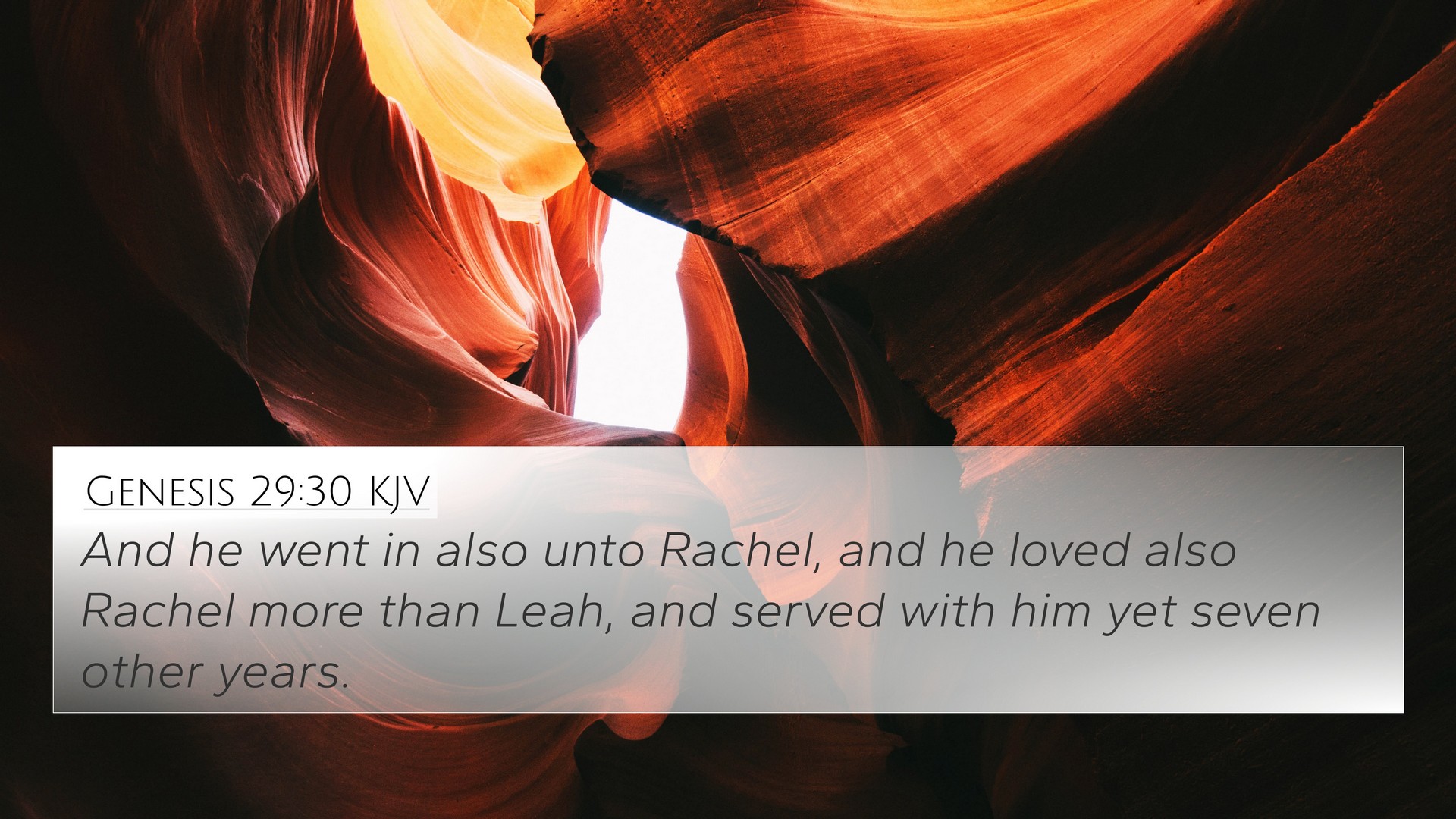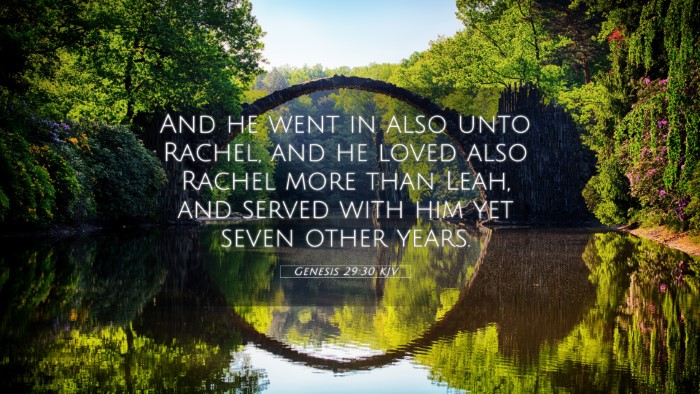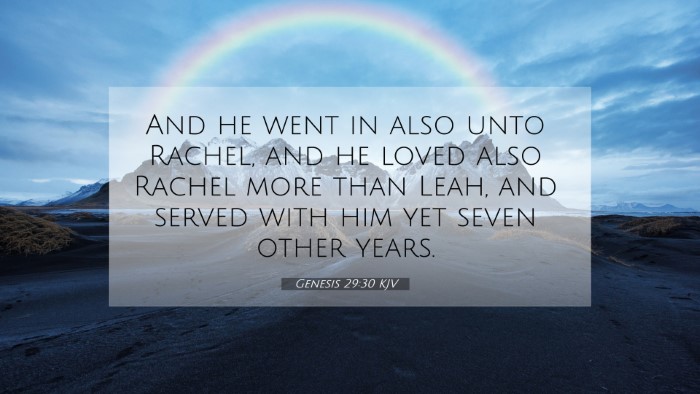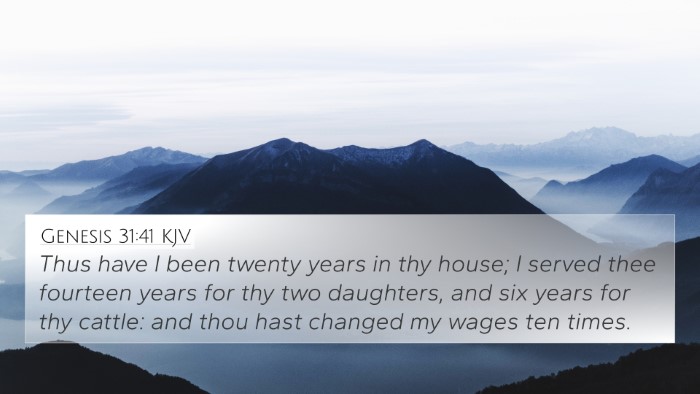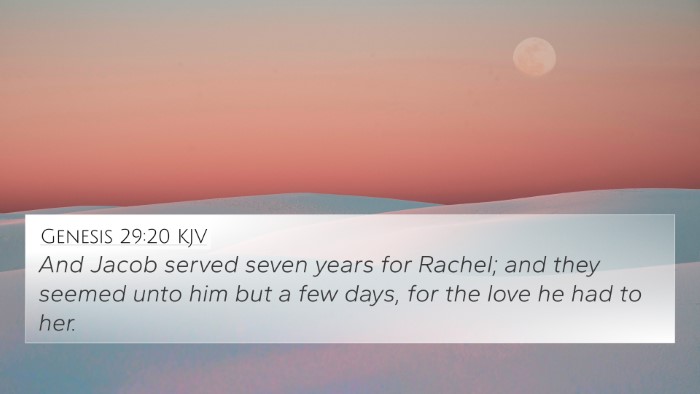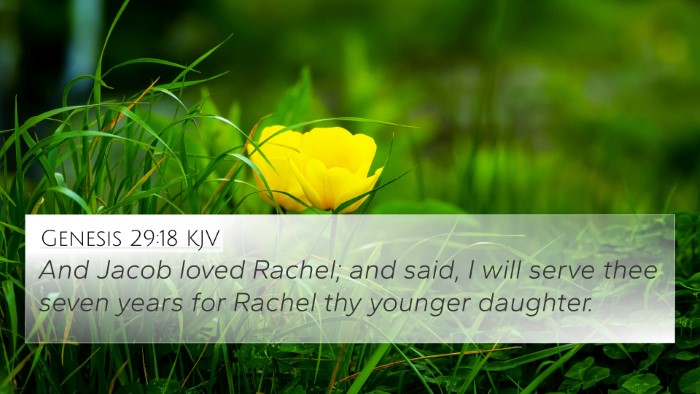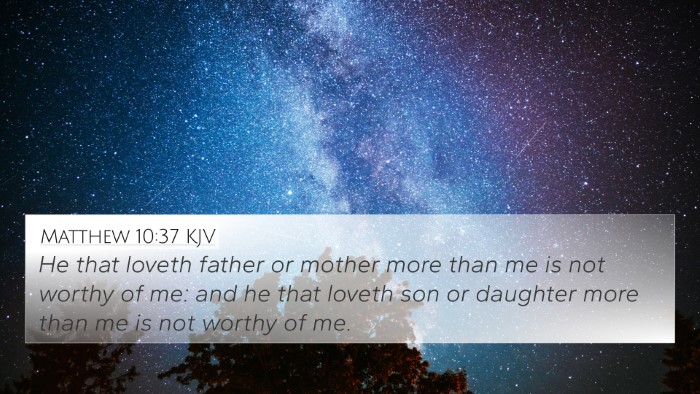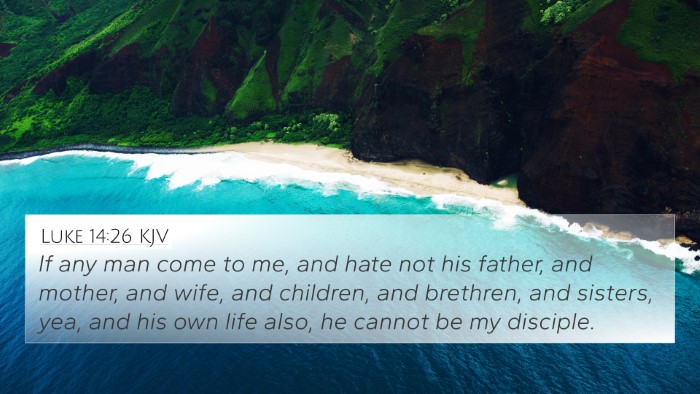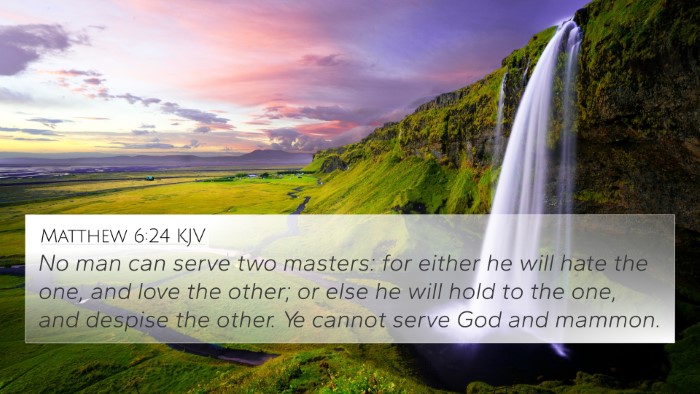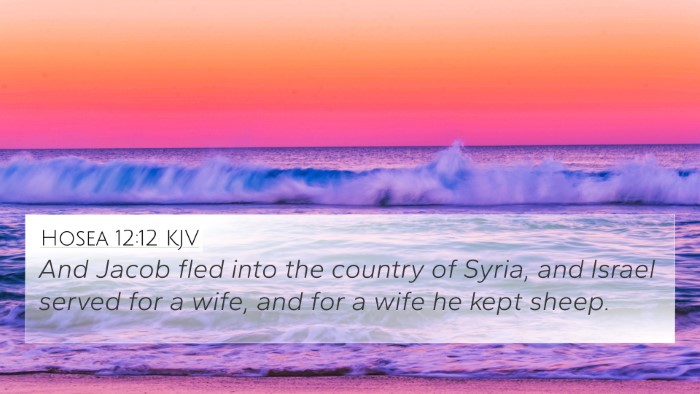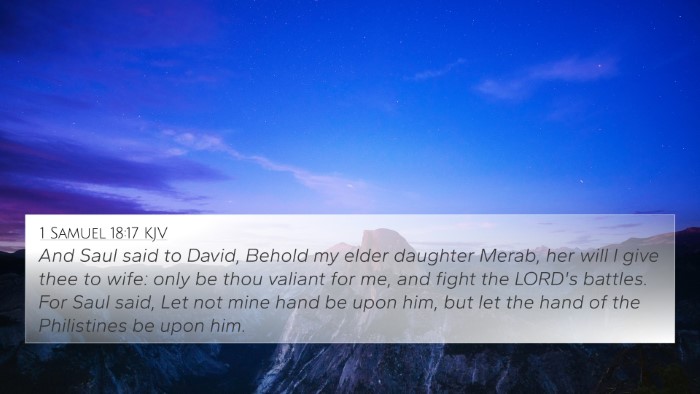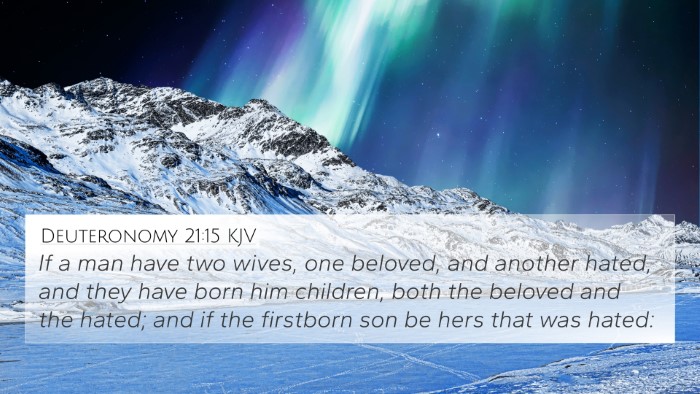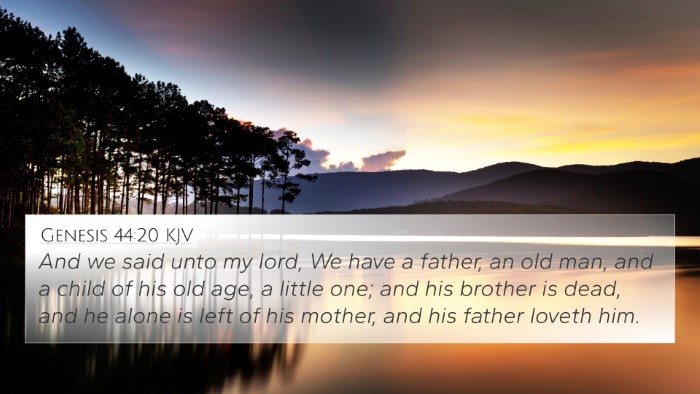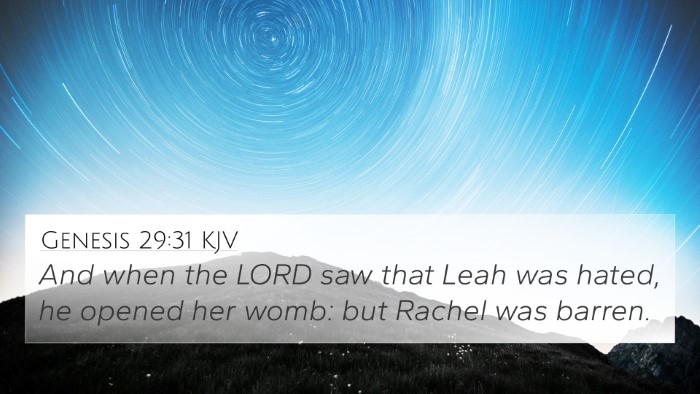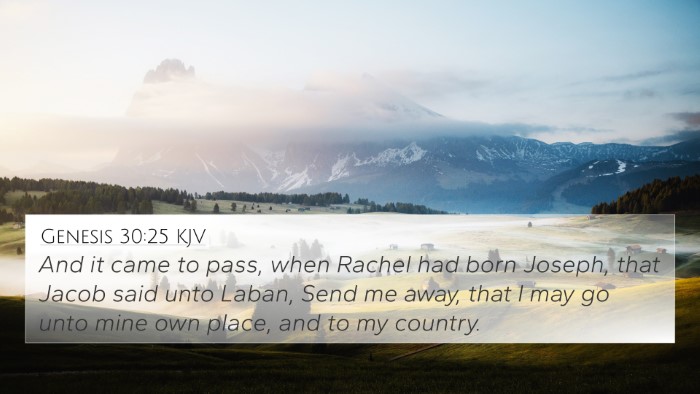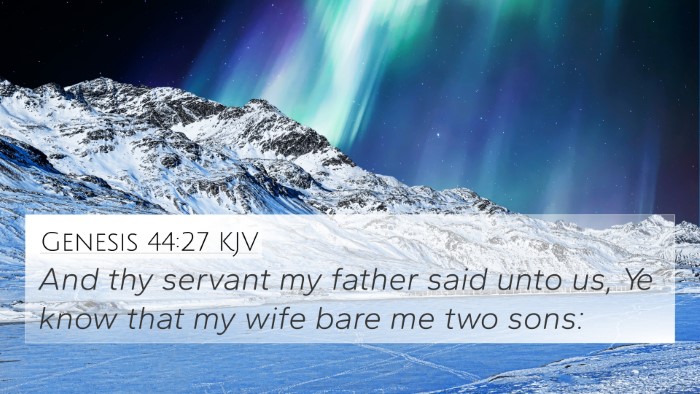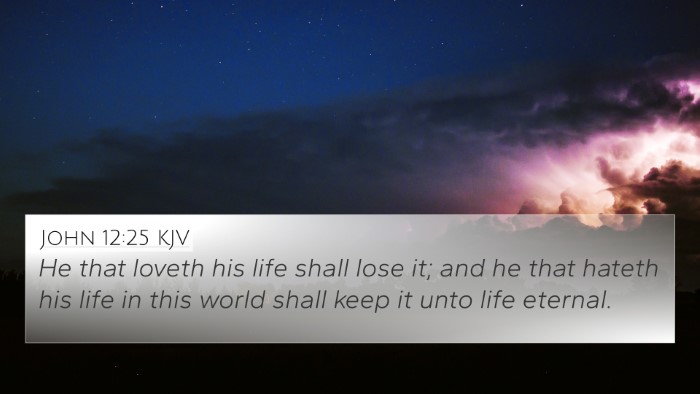Understanding Genesis 29:30
Bible Verse: Genesis 29:30 "And he went in also unto Rachel, and he loved also Rachel more than Leah, and served with him yet seven other years."
This verse highlights the complex family dynamics and relationships that define the narrative of Jacob in the Book of Genesis. When we examine this verse more closely, several key themes emerge: love, rivalry, and enhanced service. Through the insights gathered from various public domain commentaries, we can explore the meanings and implications of this crucial passage.
Verse Significance
In this verse, we see Jacob's preference for Rachel over Leah, his first wife. This preference creates a backdrop for a series of events marked by rivalry and competition. The love Jacob has for Rachel is palpable, but it also brings out the emotional and social tensions among the women.
Insights from Commentaries
- Matthew Henry: Matthew Henry emphasizes the significance of love and its effects within the family. He points out that Jacob’s affection for Rachel led to Leah feeling less valued, highlighting the emotional struggle that can arise from favoritism.
- Albert Barnes: Barnes notes the implications of Jacob’s additional service under Laban’s demands. He suggests that both Rachel and Leah represent different aspects of Jacob's life and destiny, which shows the complexities of his relationships and responsibilities.
- Adam Clarke: Clarke elaborates on the nature of the love Jacob has for Rachel. He mentions that love can sometimes cause individuals to act irrationally or lead to strife within families, as evidenced by the tension between Rachel and Leah throughout their lives.
Thematic Connections
The themes in Genesis 29:30 can be connected to various other verses in the Bible, showcasing the multifaceted nature of love, loyalty, and family dynamics. Below are notable Bible verse cross-references that enhance the understanding of this verse:
- Genesis 29:16-18: The introduction of Leah and Rachel, explaining family ties and initial affections.
- Genesis 30:1-2: Rachel's jealousy and desire for children, leading to further familial complexities.
- Genesis 29:31: God's compassion towards Leah and her bearing of children, which adds depth to the family dynamics.
- Deuteronomy 21:15-17: Laws concerning inheritance among children of multiple wives, shedding light on the cultural context.
- 1 Timothy 5:8: The importance of familial duty, resonating with the obligations that Jacob holds towards both women and their children.
- Matthew 10:37: Teaching on love and loyalty that reflects the conflict seen in Jacob's relationships.
- Romans 9:10-13: God's sovereign choice and preferences, paralleling the theme of favoritism in Jacob’s narrative.
Exploring Rivalry and Love
This passage encapsulates the struggles of love and rivalry that echo throughout scripture, drawing parallels between various families and relationships.
Comparative Analysis
When comparing narratives, Genesis 29:30 presents a clear juxtaposition of love among family members, reflective of:
- Joseph's favored status (Genesis 37:3-4) - echoing the theme of favoritism.
- Mary and Martha's relationship (Luke 10:38-42) - illustrating different expressions of love and duty within families.
- The Prodigal Son (Luke 15:11-32) - exploring themes of love and acceptance amidst rivalry and betrayal.
Tools for Bible Cross-Referencing
For those interested in delving deeper into the connections between Bible verses, utilizing tools such as a Bible concordance or a Bible cross-reference guide can greatly aid in discovering thematic links and cross-referenced scriptures. These resources facilitate a comprehensive Bible cross-reference study, allowing for a better understanding of inter-Biblical dialogue.
Conclusion
Genesis 29:30 serves as a poignant reminder of the complexities of love, family, and personal choices. Through careful examination and cross-referencing with other scriptures, readers can gain insightful perspectives on the human condition as depicted in the Bible. The lasting implications of Jacob's relationships with Leah and Rachel open avenues for reflection on our interactions and affections in contemporary life.
